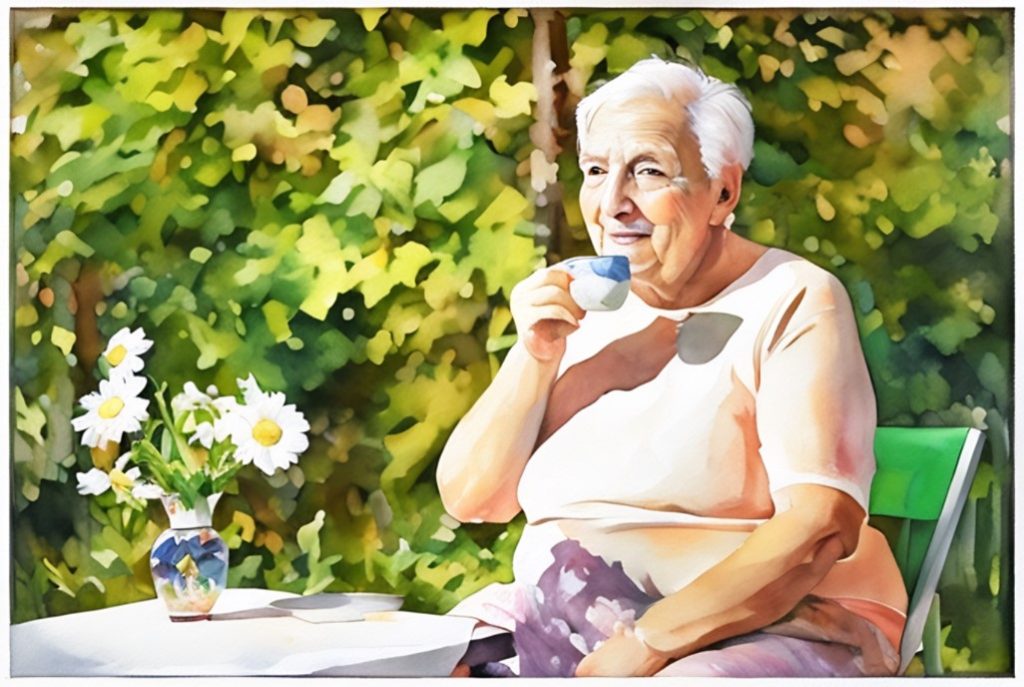Daily routines are more than just schedules—they serve as crucial pillars for wellness in older adulthood. For seniors, maintaining a consistent routine promotes physical health, mental clarity, emotional stability, and social connection, all of which contribute to a fulfilling and balanced life. This article delves into the benefits of daily routines and suggests ways to establish activities that support overall well-being.
1. Enhancing Cognitive Function
Routines provide structure and predictability, which supports cognitive health in seniors. A regular schedule minimizes the mental strain of making multiple decisions each day and keeps the brain engaged through consistent activities. Familiar routines also aid memory by strengthening neural connections associated with daily tasks, reducing cognitive overload and making day-to-day activities easier to navigate.
For example, setting a daily time for reading, puzzles, or other mental exercises helps keep the brain sharp, reinforcing the brain’s natural rhythm for cognitive engagement and relaxation.
2. Supporting Physical Health
Physical routines are foundational for maintaining physical wellness. Simple activities like morning stretching, short walks, and regular exercise sessions contribute to joint health, balance, and strength. For seniors, consistent movement is especially beneficial, as it helps prevent muscle deterioration, improves flexibility, and maintains mobility.
Incorporating scheduled physical activities, whether it’s a morning walk or gentle yoga, builds a habit of exercise and improves circulation, lowers blood pressure, and can enhance overall energy levels.
3. Promoting Emotional Stability
Daily routines also support mental and emotional health. Familiarity and repetition foster a sense of stability, especially for seniors who may experience anxiety or stress due to changes in lifestyle or health. Regular routines help seniors feel in control, which can alleviate anxiety and reduce the likelihood of depression.
Mindfulness routines—such as a brief morning meditation, gratitude journaling, or spending time with family—are particularly valuable. These moments anchor seniors to the present, reduce stress, and enhance their mood.
4. Encouraging Social Interaction
Isolation is a common challenge among older adults, but a social routine can combat loneliness and improve well-being. Scheduling calls with family, attending community gatherings, or visiting with neighbors helps seniors stay connected and nurtures a sense of community.
Even a weekly hobby group, card game with friends, or participation in a senior center class can contribute to social interaction and feelings of inclusion. Building these activities into a routine ensures they become an integral part of life.
5. Structuring Mealtime and Nutrition
Routines play a critical role in nutrition for seniors. Eating meals at consistent times aids digestion, helps regulate blood sugar, and maintains energy levels. Meal routines also support a balanced diet, helping seniors plan healthy meals with adequate vitamins and minerals.
A scheduled breakfast, lunch, and dinner routine can help seniors avoid under- or overeating and maintain a balanced intake throughout the day. Additionally, seniors may enjoy meal prepping as part of their routine, allowing them to stay involved and mindful of their nutritional choices.
6. Improving Sleep Quality
Establishing a consistent bedtime routine is essential for quality sleep, which is crucial for memory, mood, and physical health. Regular sleep-wake times regulate circadian rhythms, which is especially helpful for seniors who may struggle with sleep disturbances.
A relaxing bedtime routine—such as reading, light stretching, or listening to soothing music—signals the body to wind down, improving the chances of restful sleep. In turn, adequate sleep enhances daily energy levels and mood stability, allowing seniors to engage fully in their routines.
7. Adapting Routines for Personal Interests and Abilities
While structure is beneficial, flexibility within a routine helps seniors remain engaged and avoid monotony. Incorporating diverse activities, such as rotating hobbies (e.g., painting one day, gardening the next) or varying meal choices, allows for creativity and personal expression.
At SeniorFunPrints, we recognize the value of adding variety to routines with our monthly printable packages. Each themed package includes puzzles, coloring pages, memory games, and other engaging activities that bring fresh inspiration to daily routines. With our service, seniors receive new material regularly, encouraging consistent mental and emotional engagement.
Conclusion: Building a Balanced and Enjoyable Routine
A thoughtfully planned routine empowers seniors to thrive by integrating physical activity, mental stimulation, social engagement, and emotional care. For those looking to enrich their days, a steady routine with purposeful activities promotes well-being and fosters a positive outlook.
Explore SeniorFunPrints’ monthly printables as part of your routine. Our themed packages are designed to be easy to integrate into daily life, offering fun and meaningful activities that support seniors’ wellness every step of the way.



